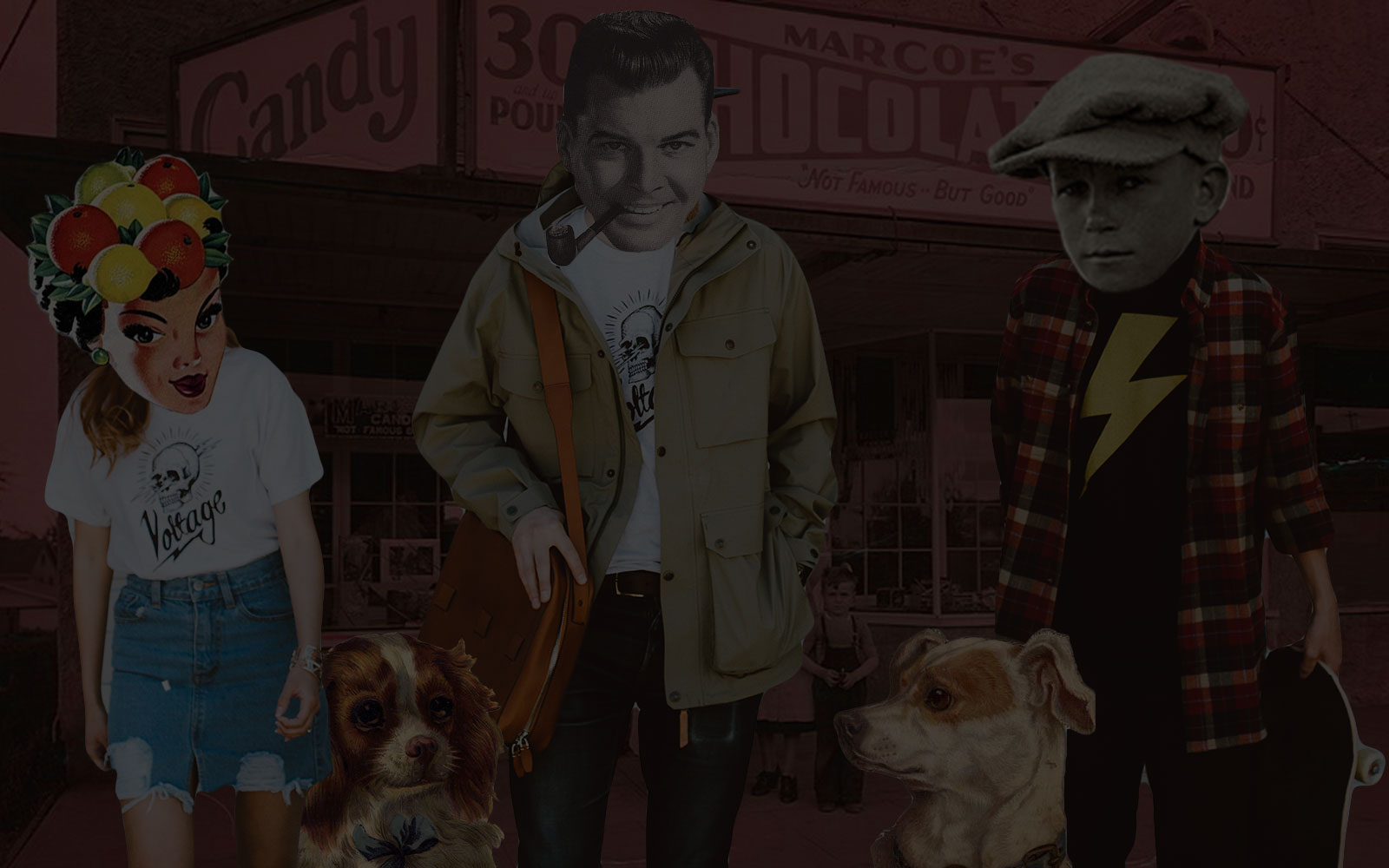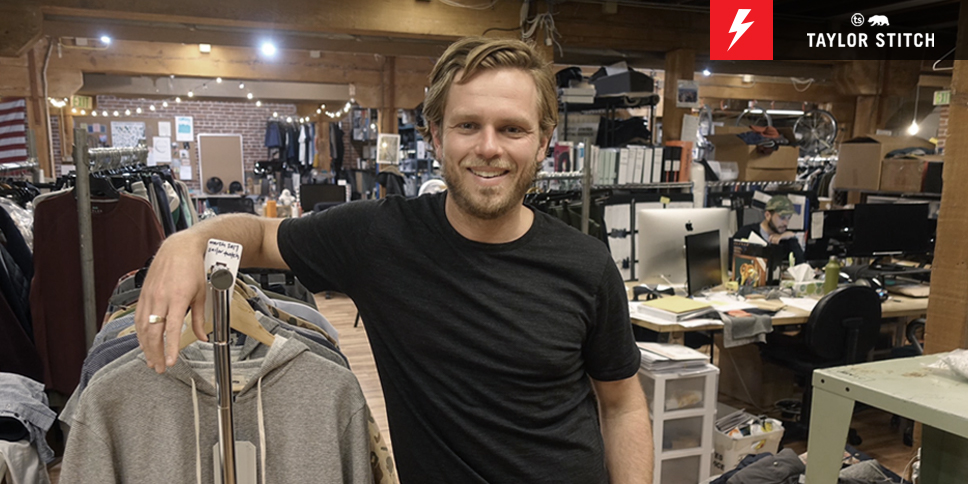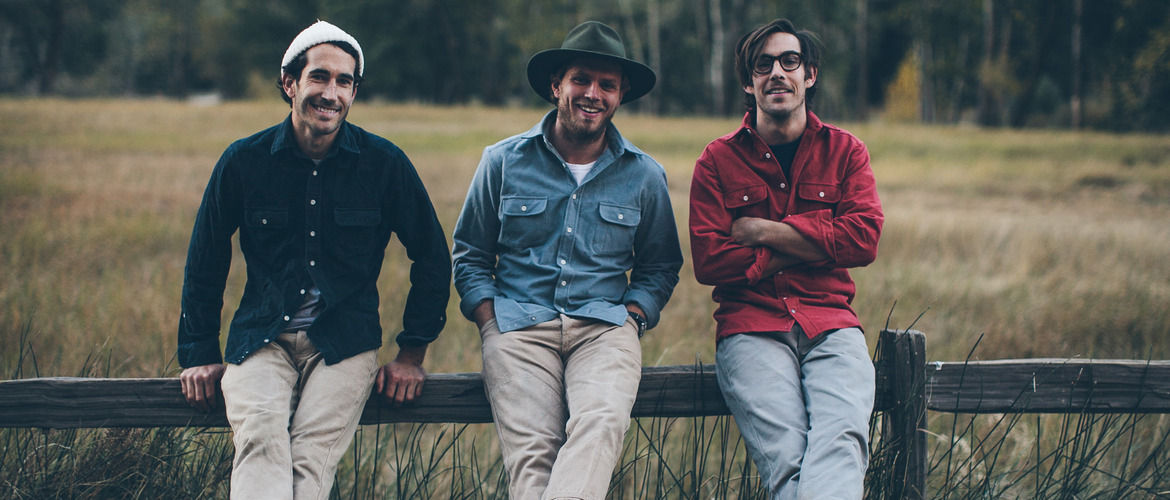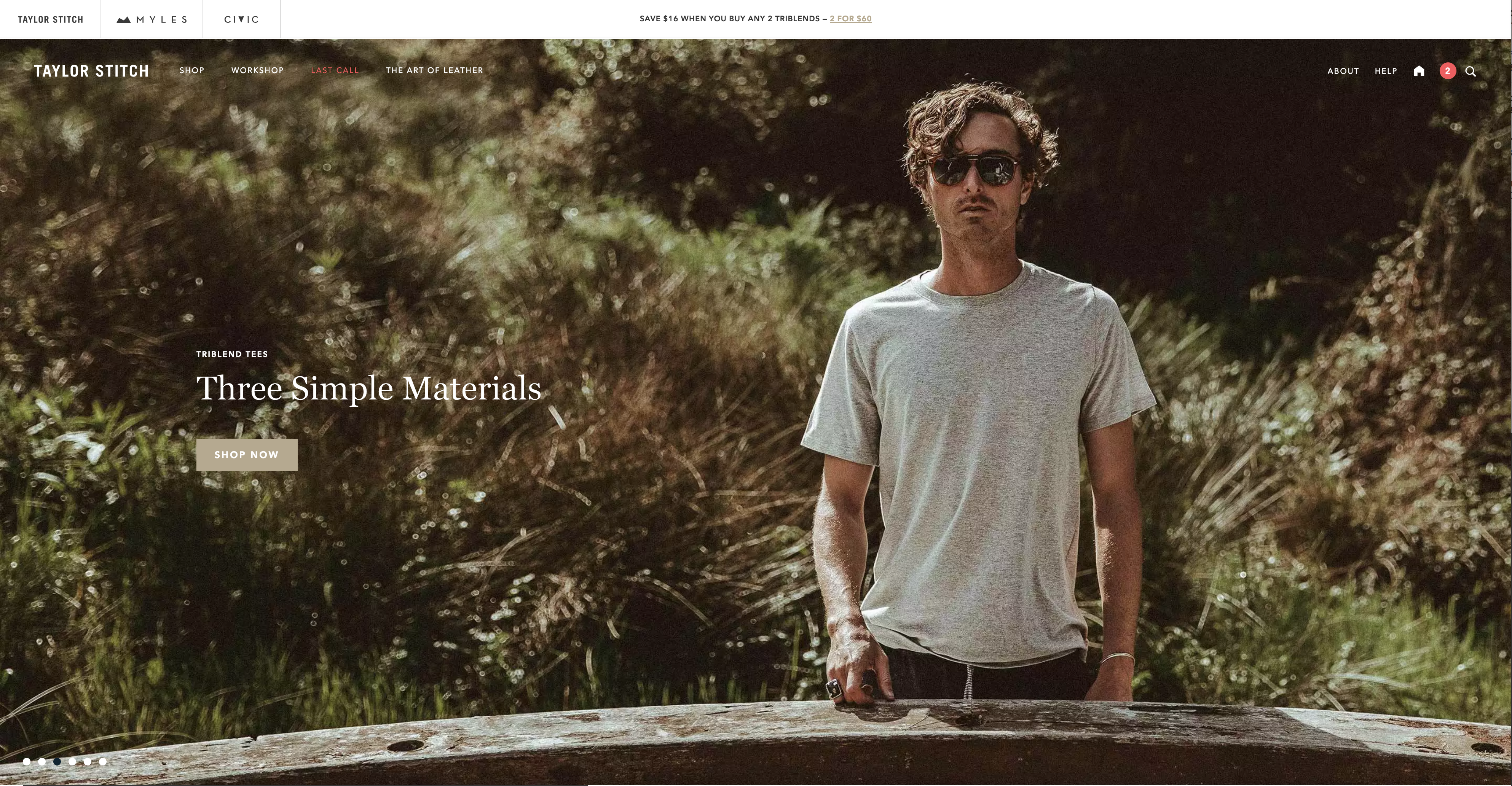
5 common homepage mistakes and how to avoid them: SlideShare
Are you making these mistakes on your eComm homepage? Check out this slide recreation of one of our fan-favorite blog posts.



VOLTAGE CEO Eric Fowles interviews the founder of menswear brand Taylor Stitch, Mike Maher, to get his take on inspiration, entrepreneurship and sustainability. Part 1 of 2.
I’ve followed Taylor Stitch for a few years now and have bought many of their wares. As a fan and a marketer, I was really excited to sit down with Taylor Stitch founder, Mike Maher, face-to-face and talk shop – the story, the brand, the commitment to quality, sustainability and more.
Mike’s passion came through loud and clear. His is an inspiring story of an entrepreneur making a difference and turning the heads of brands that have been in the space for years. If you haven’t had a chance to see their Workshop yet – and want get in early by funding a garment – go check it out here.
Eric: Tell me what inspired you to start Taylor Stitch.
Mike: I was never a clothing designer. I love business and creating and changing, and creating businesses that grow. And I love brands, and I love consumers.
For us, the original impetus for the business was that my partner’s dad brought back these custom shirts from Hong Kong. We became enamored of this idea of a custom shirt.
How do we build something that we would actually want?
That’s when we were like, how do we build something that we would actually want? So we looked at custom shirts. And at the time they were very stiff, made for the classic banker or consultant or lawyer. We wanted it more like a plaid or flannel or something like that. Not just a white or blue shirt.
And then we just started. The lifestyle of the brand came with time. We both grew up as preppy kids on the East Coast. We moved to California in 2007. The financial crisis happened, and you saw people who were in finance move over into technology. And that permeation of technology gave way to a much more casual way of dress, which aligned with the way that we were designing clothes.
But we’ve seen a lot a lot of change over the years. We started as a custom shirt maker. Then we started doing pop-up shops. Those pop-up shops gave way to a full-blown shop on Valencia Street that we opened in 2011. The custom shirts gave way to ready-to-order shirts. Those gave way to pants, jeans, T-shirts and now shoes. All of a sudden we woke up and we had a full line of menswear. And we figured out how to make all of those in the best way we possibly can.
So how do you come up with inspiration for your products? I heard you say you just make stuff you would want.
That’s definitely a big part of it. We think, “What’s the Taylor Stitch version of something that has been around forever?” We also try to upgrade fabrics on classic silhouettes.
Guys are always going to wear T-shirts, button-ups, sweaters, jeans, khakis, cool shoes and things of that nature. How do we make those products more responsible? How do we do it with cool fabrics?
We try to reframe that idea because in the end guys are pretty simple. We wear white, blue, gray and olive. There’s a scale of colors that you don’t vary from. It’s like “Oh you wear red shirts? That’s crazy man.” You know? So we try and figure out the things that work for our guy and make it a little bit more simple.
And your Workshop concept, how did that come about?
In 2015 we launched our Workshop, which is our internal crowdfunding platform much akin to a Kickstarter. That was kind of a big aha moment, because we have this incredibly engaged consumer who we want to keep engaging. And we want to mitigate the risk on the new products we make. We don’t want to overly invest in new products, and we also don’t want to overproduce. We don’t want to be one of those brands that make way too much stuff and then have to dump it at 70 or 80 or 90 percent off. That doesn’t do the world any good and it doesn’t to do the brand any good either.
So when did you move to digital marketing? What’s some of your advice there?
We actually started completely not digital. We were literally selling custom shirts door-to-door.
For us, from a digital perspective, we are trying to figure out how to really relate to our consumer in a meaningful way and get in front of him in a meaningful way. So with that, we want to serve as well as create digital content.
There’s always going to be failure, whether it’s complete failure or piecemeal failures. It’s basically like whether you put your hand on the stove or burn your whole body – failure happens.

Is there any advice you would give to other entrepreneurs?
From an entrepreneur perspective, starting a business is hard. There’s always going to be failure, whether it’s complete failure or piecemeal failures. It’s basically like whether you put your hand on the stove or burn your whole body – failure happens.
The thing I’ve found is to be very honest with ourselves. Be honest when something’s not working and when something is working. The biggest thing I’ve found when growing a business and growing a team is to make sure that you instill a culture of intellectual honesty. Make sure if you are working on something, it doesn’t matter if you fail. We’re all going to screw things up from time to time. It’s fine. Knowing that the culture is alive and well is important. Just don’t screw something up that sinks the ship.
Another is knowing it’s tough. You have to be able to persevere. You’re going to have to make sacrifices that you might not otherwise need to make. Especially if you are the founder.
Also try to understand what your needs are. There’s a whole range of people who want to start businesses. Everybody has different needs. And some people might not be able to start businesses the same way I did. I was 22 years old and didn’t have any commitments. I was able to afford to live five guys to a three-bedroom apartment. I was able to get by with very little… with pretty much next to nothing. Whereas when you start to have things like mortgages and significant others and families, you have commitments.
Eric and Mike get into present-day inspiration, the future of Taylor Stitch, and how this now-eComm brand is challenging the fashion and apparel industry through environmental and social responsibility next week in Part 2.
VOLTAGE is a digital agency specializing in eCommerce, digital brand experiences, and web apps. Get emails and insights from our team:

Are you making these mistakes on your eComm homepage? Check out this slide recreation of one of our fan-favorite blog posts.

Explore the idea of 100x faster route registration by using the route cache. How do your routes perform as your application grows?